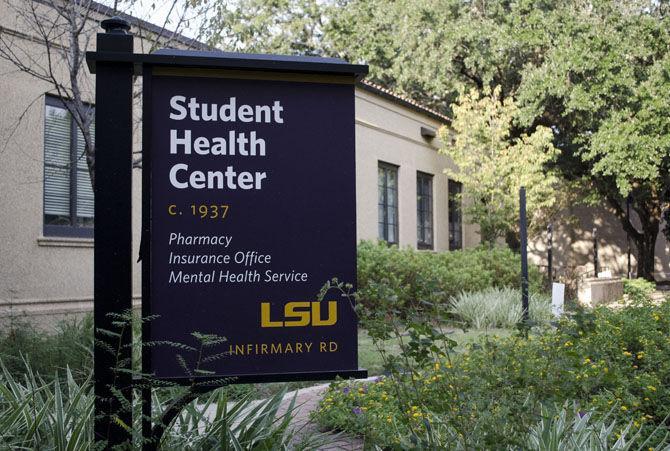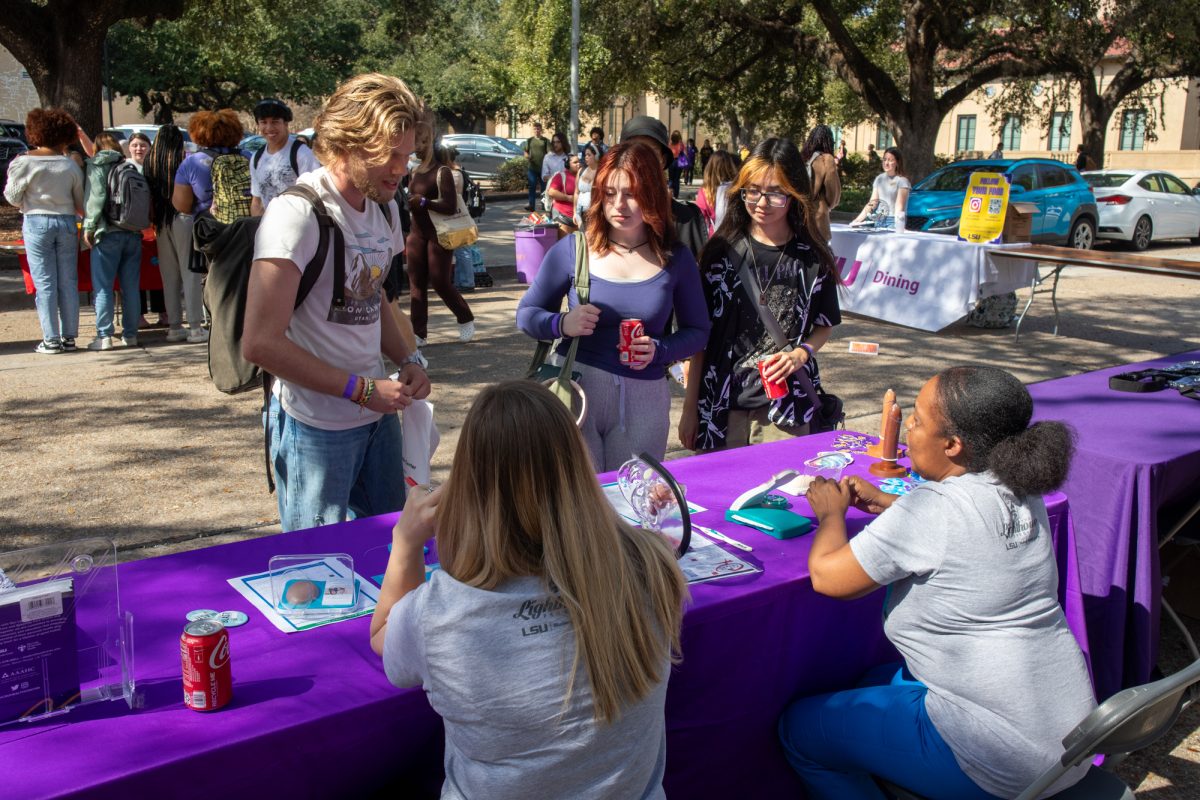Baton Rouge is ranked No. 5 in the nation for HIV and AIDS, according to the Center for Disease Control and Prevention. Additional studies from the Louisiana Department of Health have shown the majority of these cases are in close proximity to campus.
Math and biochemistry senior Joseph DeCorte and microbiology senior William Boles are tired of seeing Baton Rouge ranked on the list over and over again for the past decade, so they decided to do something about it.
The two students formed an anonymous survey promoted on the myLSU page last week. The goal of the survey is to promote future press regarding this issue, since those aged 18-24 are at the highest risk for HIV. Neighborhoods surrounding the University additionally have the highest HIV rate in the area, according to the Louisiana Department of Health.
The survey asks about healthcare, current medications, sexual activity and prior knowledge of HIV. It is open to both students and faculty members.
Boles said he was partially inspired by his roommate who volunteers for Open Care Health Clinic in Baton Rouge, a local clinic promoting HIV prevention through the PrEP and Pep programs. PrEP is a once-a-day pill taken to prevent HIV, and Pep is a pill taken to reduce risks up to 72 hours after exposure. Taking the PrEP pill as directed can reduce a person’s risk of contracting HIV by 90%, according to the Open Health Care. Boles said with the pill’s high success rate, there is no reason for HIV to be so prevalent.
“We don’t have to have the stats that we have,” Boles said. “We’ve just allowed it to happen, so we’re doing something about it.”
Another disturbing statistic from the Louisiana Department of Health estimated that 50% of people aged 18-24 who have HIV are unaware of their positive status.
“That’s a really scary thing,” DeCorte said. “When that half of the HIV population doesn’t even know they are HIV positive, that’s a really bad place to start out.”
One of the potential reasons people don’t take advantage of prevention products is lack of awareness and availability. Through research, Boles and DeCorte hope to educate students and break down accessibility barriers.
“Most people have heard of it, but the problem is resources in the community,” Boles said. “They don’t know how to get it or they said, ‘I don’t need that.’
The drug is not for everyone, but it can be helpful to higher risk individuals. One common trend is increased HIV rates among lower income communities, according to statistics from Centers for Disease Control and Prevention.
Cost can be another barrier when it comes to prevention methods, which is another thing DeCorte and Boles are trying to tackle. Right now, LSU health insurance covers the PrEP drug with a $75 copay. Without insurance, it costs about $2,000 per month. Decorte and Boles want to see the drug be free for everyone.
“Any cost barrier is going to stop some people from getting the care they need,” DeCorte said. “The more barriers you put up in front of care, the less likely people will be to utilize that.”
DeCorte and Boles want to utilize the results of their research to meet with the University’s higher administration to petition for health care policy changes. Meanwhile, they are laying the groundwork through networking and community outreach. The two often stand in Free Speech Plaza giving away condoms, sunglasses, pamphlets, t-shirts and other items provided to them by Open Health Care Clinic to raise awareness for their cause.
Still, Boles and DeCorte said no amount of free products or informational booths is going to change the problem overnight. With both students planning on graduating next month, they knew they had to continue their legacy through younger students.
“There’s no magic bullet for these issues,” Boles said. “We have abysmal sex education in this state that has certainly undermined any efforts to prevent HIV.”
The two seniors enlisted a committee full of underclassmen to continue their work through the coming years. New committee members already started formulating policies to expand outreach at the University and in the Baton Rouge community as a whole. DeCorte and Boles hope to see their vision for HIV awareness and health care policy change carried out even in their absence.
DeCorte said he would like to see the University set a precedent in terms of HIV prevention and awareness rather than continue to serve as a breeding ground.
“When you look at the statistics and see we have some of the highest rates in Baton Rouge, even higher rates in this area and the highest for those ages 18-22, that leads me to think LSU is probably a cesspool,” DeCorte said. “As the flagship University, we need to be setting an example for the rest of the state.”
Boles and DeCorte devoted their senior year to a cause that has little to do with their fields of study, but Boles said it is important for people in all different academic spheres to contribute their skills to solve the HIV crisis. Ultimately, their drive stems from disgust with current statistics, a desire to see improvement and a concern for the well-being of their fellow classmates.
“We both just saw something we were rightfully enraged by,” DeCorte said. “That is what motivated us to do something about it.”










